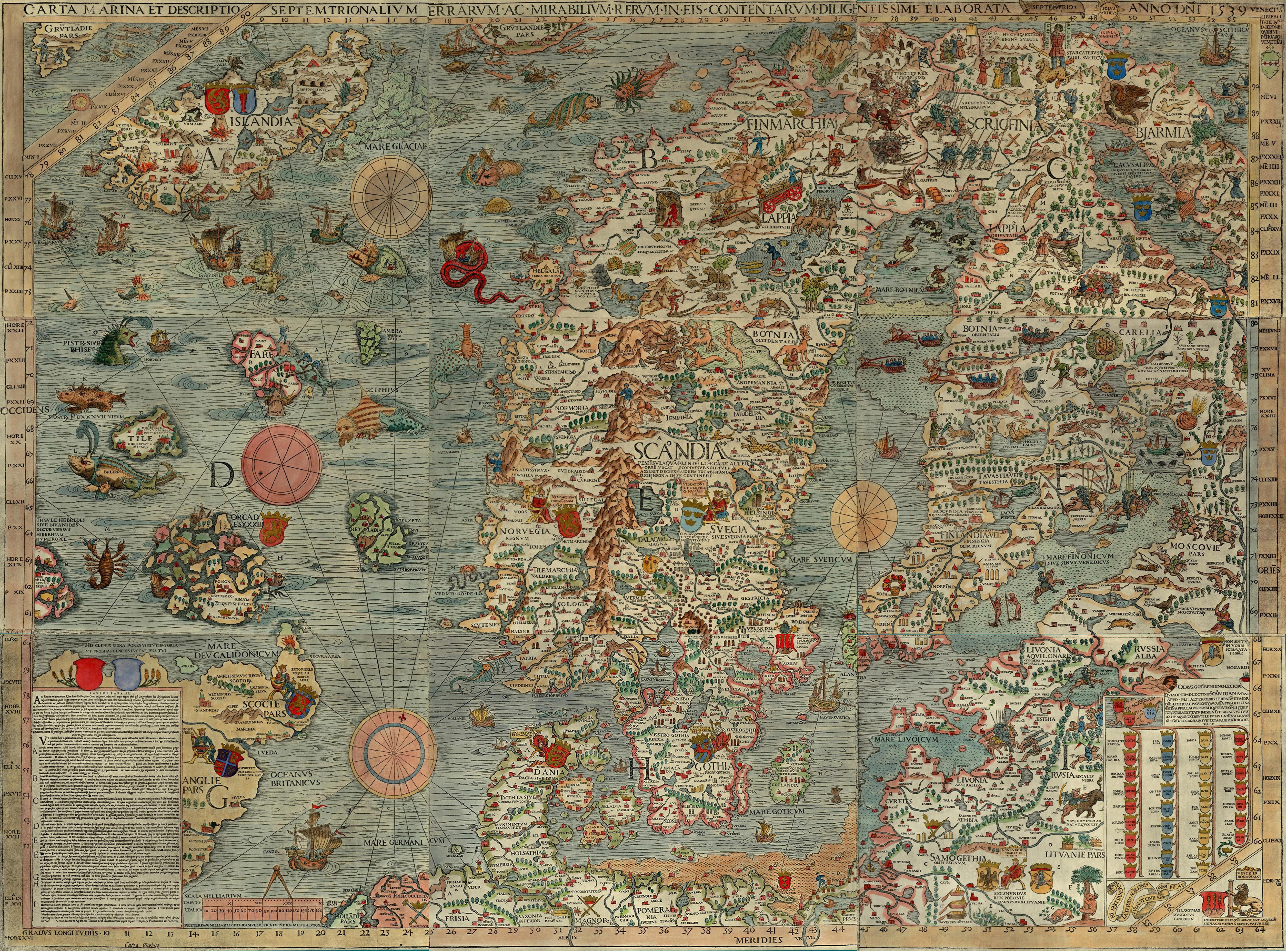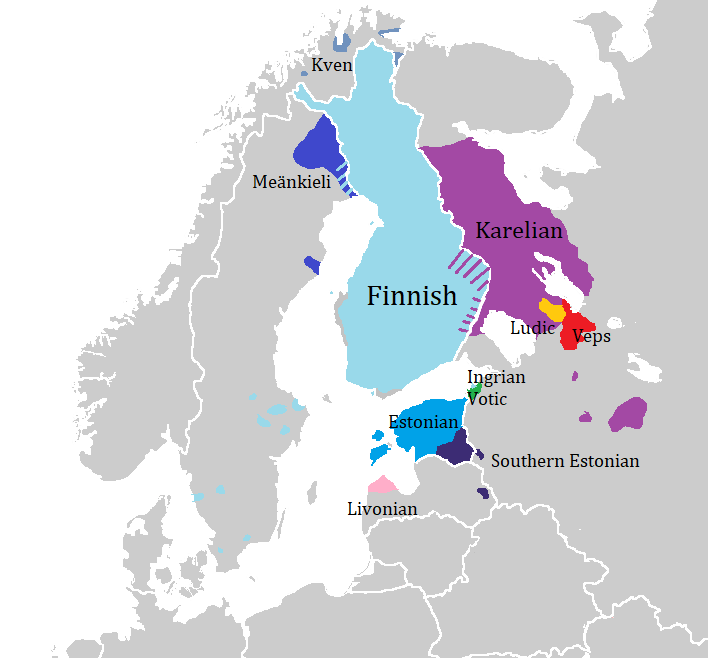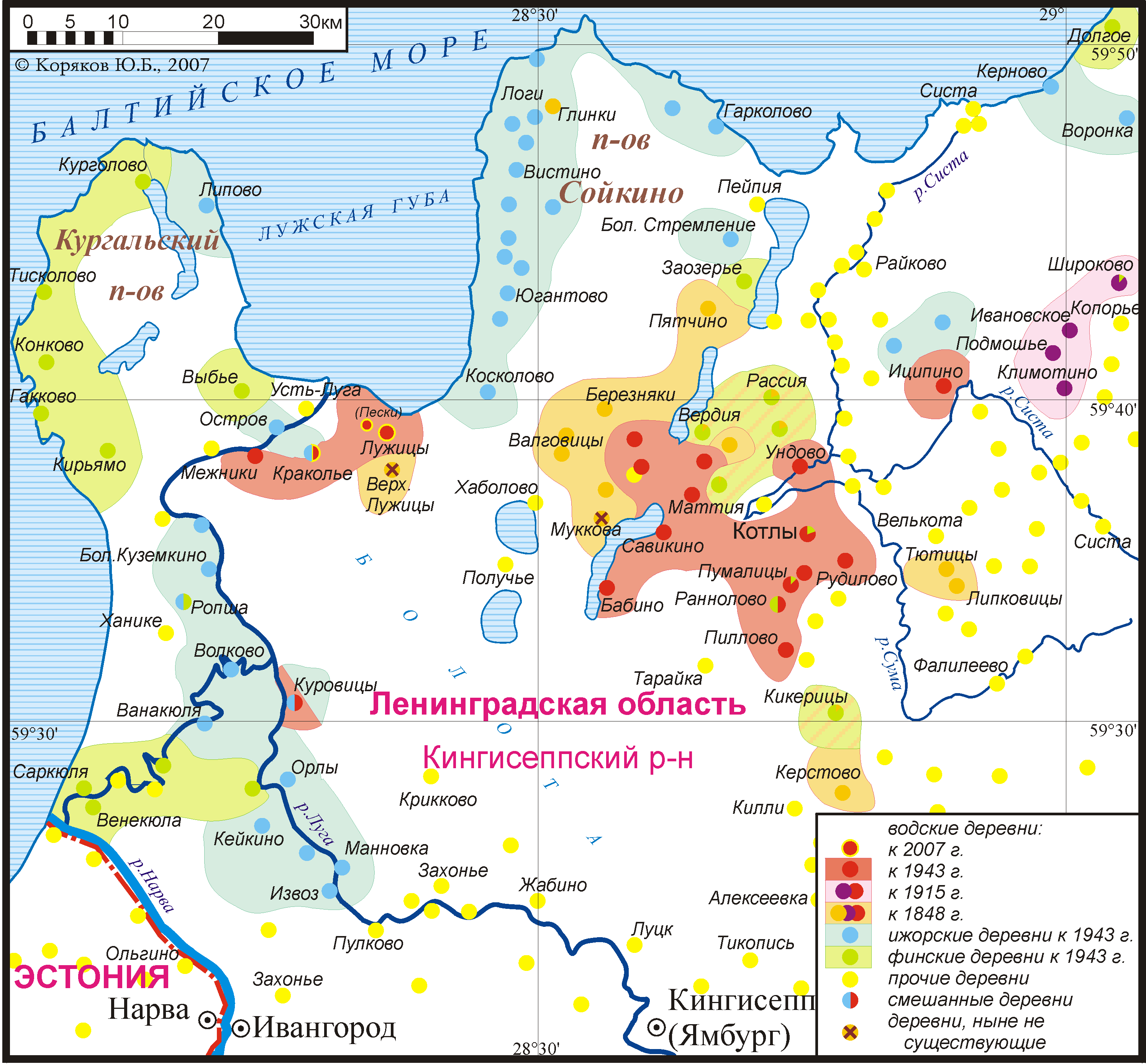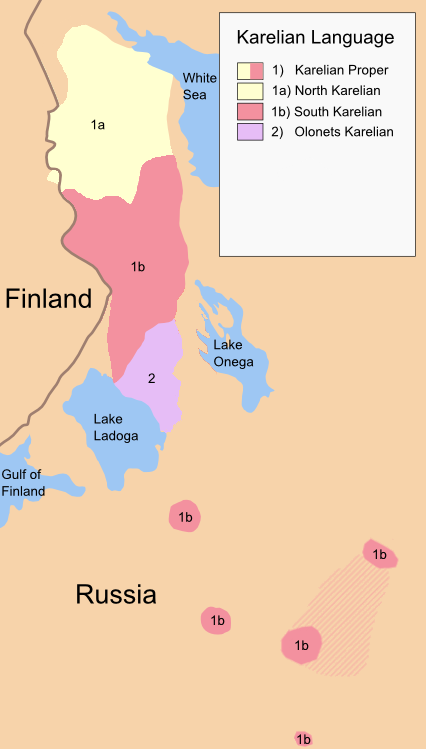|
Kukkuzi Dialect
Kukkuzi dialect or Kukkusi dialect (Rus: Куровицы) is a dialect of Votic spoken in Kukkuzi the Kukkuzi dialect has been heavily influenced by Ingrian. There exists a recording session of the Kukkuzi dialect, which was made in 2008–2012. A Kukkuzi dialect dictionary has been made in 1980. The Kukkuzi dialect has been declared to be dead since the 1970s, however three existing speakers have been located in 2006. Classification According to E.B. Markus the Kukkuzi dialect has izhorian like vocabulary and phonetics, while containing Votic grammar which is a result of an incomplete language switch to Izhorian. However some linguists have claimed it rather as a dialect of Ingrian and some classify it as a mixed language In the past Kukkuzi has also sometimes been classified as a Finnish dialect. According to Tiit-Rein Viitso Tiit-Rein Viitso (4 March 1938 – 2 December 2022) was an Estonian linguist. In 1962, he graduated from Tartu State University in Estonian phil ... [...More Info...] [...Related Items...] OR: [Wikipedia] [Google] [Baidu] |
Ingria
Ingria is a historical region in what is now northwestern European Russia. It lies along the southeastern shore of the Gulf of Finland, bordered by Lake Ladoga on the Karelian Isthmus in the north and by the River Narva on the border with Estonia in the west. The earliest known indigenous European peoples of the region are the now mostly Eastern Orthodox Izhorians and Votians, as well as the Ingrian Finns who descend from the Lutheran Finnish immigrants who settled in the area in the 17th century, when Finland proper and Ingria were both parts of the Swedish Empire. Ingria as a whole never formed a separate state, however North Ingria was an independent state for just under two years in 1919–1920. The Ingrians, understood as the inhabitants of Ingria regardless of ethnicity, can hardly be said to have been a nation, although the Soviet Union recognized their "nationality"; as an ethnic group, the Ingrians proper, Izhorians, are close to extinction together with ... [...More Info...] [...Related Items...] OR: [Wikipedia] [Google] [Baidu] |
Finnic Languages
The Finnic (''Fennic'') or more precisely Balto-Finnic (Balto-Fennic, Baltic Finnic, Baltic Fennic) languages constitute a branch of the Uralic language family spoken around the Baltic Sea by the Baltic Finnic peoples. There are around 7 million speakers, who live mainly in Finland and Estonia. Traditionally, eight Finnic languages have been recognized. The major modern representatives of the family are Finnish and Estonian, the official languages of their respective nation states.Finnic Peoples at Encyclopædia Britannica The other Finnic languages in the Baltic Sea region are Ingrian and |
Votic
Votic, or Votian (''vaďďa tšeeli'', ''maatšeeli'') �vɑːdʔda ˈtʃɨlɨ, mɑːt.ʃɨlɨ is the language spoken by the Votes of Ingria, belonging to the Finnic branch of the Uralic languages. Votic is spoken only in Krakolye and Luzhitsy, two villages in Kingiseppsky District in Leningrad Oblast, Russia, and is close to extinction. According to Arvo Survo, in 2021 Votic had only 4 native speakers and 100 people who had some knowledge of the language. History Votic is one of numerous Finnic varieties known from Ingria. Votic shares some similarities with and has acquired loanwords from the adjacent Ingrian language, but also has deep-reaching similarities with Estonian to the west, which is considered its closest relative. Some linguists, including Tiit-Rein Viitso and Paul Alvre, have claimed that Votic evolved specifically from northeastern dialects of ancient Estonian. Votic regardless exhibits several features that indicate its distinction from Estonian (both inn ... [...More Info...] [...Related Items...] OR: [Wikipedia] [Google] [Baidu] |
Russian Language
Russian (russian: русский язык, russkij jazyk, link=no, ) is an East Slavic language mainly spoken in Russia. It is the native language of the Russians, and belongs to the Indo-European language family. It is one of four living East Slavic languages, and is also a part of the larger Balto-Slavic languages. Besides Russia itself, Russian is an official language in Belarus, Kazakhstan, and Kyrgyzstan, and is used widely as a lingua franca throughout Ukraine, the Caucasus, Central Asia, and to some extent in the Baltic states. It was the ''de facto'' language of the former Soviet Union, Constitution and Fundamental Law of the Union of Soviet Socialist Republics, 1977: Section II, Chapter 6, Article 36 and continues to be used in public life with varying proficiency in all of the post-Soviet states. Russian has over 258 million total speakers worldwide. It is the most spoken Slavic language, and the most spoken native language in Europe, as well as the ... [...More Info...] [...Related Items...] OR: [Wikipedia] [Google] [Baidu] |
Votic Language
Votic, or Votian (''vaďďa tšeeli'', ''maatšeeli'') �vɑːdʔda ˈtʃɨlɨ, mɑːt.ʃɨlɨ is the language spoken by the Votes of Ingria, belonging to the Finnic branch of the Uralic languages. Votic is spoken only in Krakolye and Luzhitsy, two villages in Kingiseppsky District in Leningrad Oblast, Russia, and is close to extinction. According to Arvo Survo, in 2021 Votic had only 4 native speakers and 100 people who had some knowledge of the language. History Votic is one of numerous Finnic varieties known from Ingria. Votic shares some similarities with and has acquired loanwords from the adjacent Ingrian language, but also has deep-reaching similarities with Estonian to the west, which is considered its closest relative. Some linguists, including Tiit-Rein Viitso and Paul Alvre, have claimed that Votic evolved specifically from northeastern dialects of ancient Estonian. Votic regardless exhibits several features that indicate its distinction from Estonian (both innovatio ... [...More Info...] [...Related Items...] OR: [Wikipedia] [Google] [Baidu] |
Kukkuzi
Kukkuzi dialect or Kukkusi dialect (Rus: Куровицы) is a dialect of Votic spoken in Kukkuzi the Kukkuzi dialect has been heavily influenced by Ingrian. There exists a recording session of the Kukkuzi dialect, which was made in 2008–2012. A Kukkuzi dialect dictionary has been made in 1980. The Kukkuzi dialect has been declared to be dead since the 1970s, however three existing speakers have been located in 2006. Classification According to E.B. Markus the Kukkuzi dialect has izhorian like vocabulary and phonetics, while containing Votic grammar which is a result of an incomplete language switch to Izhorian. However some linguists have claimed it rather as a dialect of Ingrian and some classify it as a mixed language In the past Kukkuzi has also sometimes been classified as a Finnish dialect. According to Tiit-Rein Viitso Tiit-Rein Viitso (4 March 1938 – 2 December 2022) was an Estonian linguist. In 1962, he graduated from Tartu State University in Estonian phil ... [...More Info...] [...Related Items...] OR: [Wikipedia] [Google] [Baidu] |
Ingrian Language
Ingrian can refer to: *Of or pertaining to the region of Ingria *The Ingrians, which can refer to: **Ingrian Finns, descendants of Finnish immigrants to Ingria in the 17th century **Izhorians, an indigenous people of Ingria *The Ingrian language (also called Izhorian; spoken by the Izhorians The Izhorians (russian: Ижо́ра; ижо́рцы; fi, inkerikot; et, isurid; sg. ''ižoralain'', ''inkeroin'', ''ižora'', ''ingermans'', ''ingers'', ''ingrian'', pl. ''ižoralaizet''), along with the Votes, are a Finnic indigenous peopl ...) *The Ingrian dialect of Finnish (spoken by Ingrian Finns) {{disambig Ingria ... [...More Info...] [...Related Items...] OR: [Wikipedia] [Google] [Baidu] |
Tiit-Rein Viitso
Tiit-Rein Viitso (4 March 1938 – 2 December 2022) was an Estonian linguist. In 1962, he graduated from Tartu State University in Estonian philology. From 1965 to 1973 he worked at Tartu State University's Computational Centre (). During 1973–1993 he worked at Estonian Language Institute, and from 1986 – at Tartu State University (now, the University of Tartu). Works In 1966, he successfully defended his candidate's thesis focusing on the Onega Vepsian dialect. His dissertation, delving into the comparative phonology of Finnic languages, was penned and defended in 1983. His professional journey spanned various prestigious institutions: he served at the University of Tartu Computing Centre from 1965 to 1973, then transitioned to the Institute of Language and Literature, where he held positions as a senior researcher until 1993, eventually ascending to the role of leading researcher. Simultaneously, he contributed significantly to academia as an extraordinary professor at ... [...More Info...] [...Related Items...] OR: [Wikipedia] [Google] [Baidu] |
Karelian Language
Karelian (North Karelian and Livvi Karelian: ; Ludic: ; Tver Karelian: ) is a Finnic language spoken mainly in the Russian Republic of Karelia. Linguistically, Karelian is closely related to the Finnish dialects spoken in eastern Finland, and some Finnish linguists have even classified Karelian as a dialect of Finnish, though in the modern day it is widely considered a separate language. Karelian is not to be confused with the Southeastern dialects of Finnish, sometimes referred to as ("Karelian dialects") in Finland. There is no single standard Karelian language. Each writer writes in Karelian according to their own dialectal form. Three main written standards have been developed, for North Karelian, Olonets Karelian (also known as Livvi Karelian) and Tver Karelian. Ludic Karelian also appears in writing. All variants are written with the Latin-based Karelian alphabet, though the Cyrillic script has been used in the past. Classification Karelian belongs to the Finnic bra ... [...More Info...] [...Related Items...] OR: [Wikipedia] [Google] [Baidu] |
Veps Language
Veps, also known as Vepsian (Veps: ' or '), is a Finnic language from the Uralic language family, that is spoken by Vepsians. The language is written in the Latin script, and is closely related to Finnish and Karelian. According to Soviet statistics, 12,500 people were self-designated ethnic Veps at the end of 1989. There were 5,900 self-designated ethnic Veps in 2010, and around 3,600 native speakers. According to the location of the people, the language is divided into three main dialects: Northern Veps (at Lake Onega to the south of Petrozavodsk, to the north of the river Svir, including the former Veps National Volost), Central Veps (in the East of the Leningrad Oblast and Northwest of the Vologda Oblast), and Southern Veps (in the Leningrad Oblast). The Northern dialect seems the most distinct of the three; however, it is still mutually intelligible for speakers of the other two dialects. Speakers of the Northern dialect call themselves "Ludi" ('), or '. In Russi ... [...More Info...] [...Related Items...] OR: [Wikipedia] [Google] [Baidu] |
Votians
Votians, also referred to as Votes, Vots and Vods ( vot, Vađđalaizõd, et, vadjalased) are a Finnic ethnic group native to historical Ingria, the part of modern-day northwestern Russia that is roughly southwest of Saint Petersburg and east of the Estonian border-town of Narva. The Finnic Votic language spoken by Votians is close to extinction. The language is still spoken in three villages of historical Votia and by an unknown number of speakers in the countryside. The villages are ''Jõgõperä'' (Krakolye), ''Liivcülä'' (Peski), and ''Luuditsa'' (Luzhitsy).Eesti Rahva Muuseum: Vadjalased Votians were one of the founding people of . History ) , l ...[...More Info...] [...Related Items...] OR: [Wikipedia] [Google] [Baidu] |
Extinct Languages Of Europe
Extinction is the termination of a kind of organism or of a group of kinds (taxon), usually a species. The moment of extinction is generally considered to be the death of the last individual of the species, although the capacity to breed and recover may have been lost before this point. Because a species' potential range may be very large, determining this moment is difficult, and is usually done retrospectively. This difficulty leads to phenomena such as Lazarus taxa, where a species presumed extinct abruptly "reappears" (typically in the fossil record) after a period of apparent absence. More than 99% of all species that ever lived on Earth, amounting to over five billion species, are estimated to have died out. It is estimated that there are currently around 8.7 million species of eukaryote globally, and possibly many times more if microorganisms, like bacteria, are included. Notable extinct animal species include non-avian dinosaurs, saber-toothed cats, dodos, ... [...More Info...] [...Related Items...] OR: [Wikipedia] [Google] [Baidu] |






.jpg)